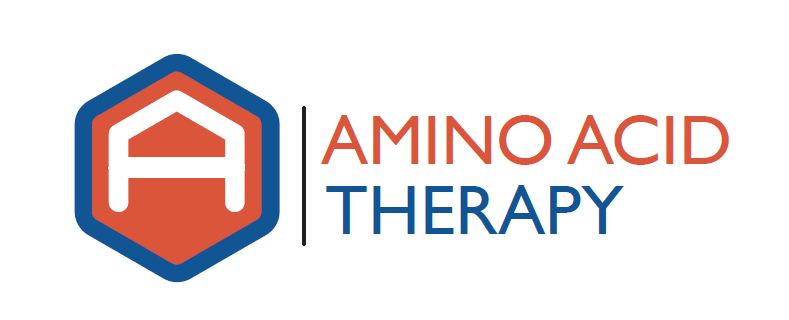by aatadmin | Nov 8, 2017 | Amino Acid Therapy, dopamine dominance, Parkinson's Disease
 We have now seen over one hundred clients that had previously been working with other providers for guidance using amino acid therapy. Many of these clients had previous DBS testing completed to help them determine how to optimize their neurotransmitter function. Unfortunately, they did not follow the correct preparation procedure to complete the test and got erroneous results, which then led to erroneous recommendations from their health care providers and sub-optimal resolution of their symptoms. (more…)
We have now seen over one hundred clients that had previously been working with other providers for guidance using amino acid therapy. Many of these clients had previous DBS testing completed to help them determine how to optimize their neurotransmitter function. Unfortunately, they did not follow the correct preparation procedure to complete the test and got erroneous results, which then led to erroneous recommendations from their health care providers and sub-optimal resolution of their symptoms. (more…)
by aatadmin | Oct 11, 2017 | Amino Acid Therapy, dopamine dominance, Parkinson's Disease
 Once it has been determined that a person is dopamine dominant (via the successful completion of a dopamine challenge), the next step in optimizing neurotransmitter function is determining the amount of L-dopa needed (from standardized mucuna pruriens) to maximize symptom control. In order to do that, periodic adjustments are made to the mucuna dosing followed by a pill stop. Successfully completing a pill stop can provide valuable information on how to proceed; unfortunately, many people do pill stops incorrectly, which delays the optimization of their neurotransmitter function and symptom relief. (more…)
Once it has been determined that a person is dopamine dominant (via the successful completion of a dopamine challenge), the next step in optimizing neurotransmitter function is determining the amount of L-dopa needed (from standardized mucuna pruriens) to maximize symptom control. In order to do that, periodic adjustments are made to the mucuna dosing followed by a pill stop. Successfully completing a pill stop can provide valuable information on how to proceed; unfortunately, many people do pill stops incorrectly, which delays the optimization of their neurotransmitter function and symptom relief. (more…)
by aatadmin | Sep 27, 2017 | Adrenal Fatigue, Amino Acid Therapy, dopamine dominance, Symptoms of Neurotransmitter Imbalance
 Every so often we encounter a case where we have seemingly found a person’s optimized dose of amino acids – meaning that whatever symptoms they were experiencing (i.e., depression, anxiety, urges to pull, migraines, tremor, inability to sleep, etc.) have been significantly reduced and/or eliminated – when ‘out of the blue’ their original symptoms return. This can present itself at anytime, but is most typical after a few weeks or months (3-4 months is most common) on the amino acids at the optimized dose. Before the client or provider begins to change anything (or panic) there are a couple of things that MUST be done to insure accurate and optimal results. (more…)
Every so often we encounter a case where we have seemingly found a person’s optimized dose of amino acids – meaning that whatever symptoms they were experiencing (i.e., depression, anxiety, urges to pull, migraines, tremor, inability to sleep, etc.) have been significantly reduced and/or eliminated – when ‘out of the blue’ their original symptoms return. This can present itself at anytime, but is most typical after a few weeks or months (3-4 months is most common) on the amino acids at the optimized dose. Before the client or provider begins to change anything (or panic) there are a couple of things that MUST be done to insure accurate and optimal results. (more…)
by aatadmin | Sep 13, 2017 | Amino Acid Therapy, dopamine dominance, Symptoms of Neurotransmitter Imbalance
 There are a lot of disorders related to neurotransmitter dysfunction, including depression, anxiety, insomnia, migraines, trichotillomania, OCD, RLS and Parkinson’s disease, among others. The vast majority of people with these conditions (aside from RLS and Parkinson’s) are serotonin dominant, which means that these people normally require much more support for serotonin than the catecholamines (dopamine, norepinephrine and epinephrine) in order to optimize neurotransmitter function. On the opposite end of the spectrum are those people that are dopamine dominant; this includes people with RLS and Parkinson’s Disease. In addition, there is a small group of people with conditions that are typically serotonin dominant (roughly between 6-12%) that actually end up needing significant dopamine support (i.e, they are dopamine dominant). The only way to determine this is via specialized urine testing. To make matters more complicated, it turns out that there is a third group of people that need significant support for both the serotonin and catecholamine systems; these people are typically labeled “hybrids”. (more…)
There are a lot of disorders related to neurotransmitter dysfunction, including depression, anxiety, insomnia, migraines, trichotillomania, OCD, RLS and Parkinson’s disease, among others. The vast majority of people with these conditions (aside from RLS and Parkinson’s) are serotonin dominant, which means that these people normally require much more support for serotonin than the catecholamines (dopamine, norepinephrine and epinephrine) in order to optimize neurotransmitter function. On the opposite end of the spectrum are those people that are dopamine dominant; this includes people with RLS and Parkinson’s Disease. In addition, there is a small group of people with conditions that are typically serotonin dominant (roughly between 6-12%) that actually end up needing significant dopamine support (i.e, they are dopamine dominant). The only way to determine this is via specialized urine testing. To make matters more complicated, it turns out that there is a third group of people that need significant support for both the serotonin and catecholamine systems; these people are typically labeled “hybrids”. (more…)
by aatadmin | Jul 19, 2017 | Amino Acid Therapy, dopamine dominance, Symptoms of Neurotransmitter Imbalance
 It is not at all uncommon for a person to present with multiple symptoms of neurotransmitter dysfunction; in fact, it is the rare case when a person has symptoms in only one area, such as depression only or anxiety only or insomnia only. (more…)
It is not at all uncommon for a person to present with multiple symptoms of neurotransmitter dysfunction; in fact, it is the rare case when a person has symptoms in only one area, such as depression only or anxiety only or insomnia only. (more…)
 We have now seen over one hundred clients that had previously been working with other providers for guidance using amino acid therapy. Many of these clients had previous DBS testing completed to help them determine how to optimize their neurotransmitter function. Unfortunately, they did not follow the correct preparation procedure to complete the test and got erroneous results, which then led to erroneous recommendations from their health care providers and sub-optimal resolution of their symptoms. (more…)
We have now seen over one hundred clients that had previously been working with other providers for guidance using amino acid therapy. Many of these clients had previous DBS testing completed to help them determine how to optimize their neurotransmitter function. Unfortunately, they did not follow the correct preparation procedure to complete the test and got erroneous results, which then led to erroneous recommendations from their health care providers and sub-optimal resolution of their symptoms. (more…)
 Once it has been determined that a person is
Once it has been determined that a person is  Every so often we encounter a case where we have seemingly found a person’s optimized dose of amino acids – meaning that whatever symptoms they were experiencing (i.e., depression, anxiety, urges to pull, migraines, tremor, inability to sleep, etc.) have been significantly reduced and/or eliminated – when ‘out of the blue’ their original symptoms return. This can present itself at anytime, but is most typical after a few weeks or months (3-4 months is most common) on the amino acids at the optimized dose. Before the client or provider begins to change anything (or panic) there are a couple of things that MUST be done to insure accurate and optimal results.
Every so often we encounter a case where we have seemingly found a person’s optimized dose of amino acids – meaning that whatever symptoms they were experiencing (i.e., depression, anxiety, urges to pull, migraines, tremor, inability to sleep, etc.) have been significantly reduced and/or eliminated – when ‘out of the blue’ their original symptoms return. This can present itself at anytime, but is most typical after a few weeks or months (3-4 months is most common) on the amino acids at the optimized dose. Before the client or provider begins to change anything (or panic) there are a couple of things that MUST be done to insure accurate and optimal results.  There are a lot of
There are a lot of  It is not at all uncommon for a person to present with
It is not at all uncommon for a person to present with 